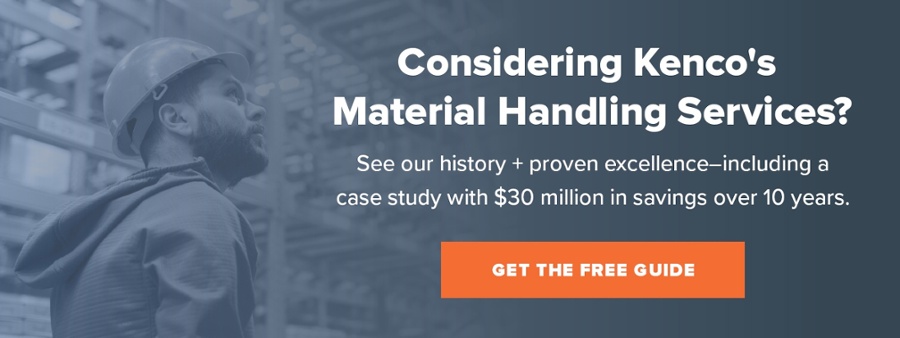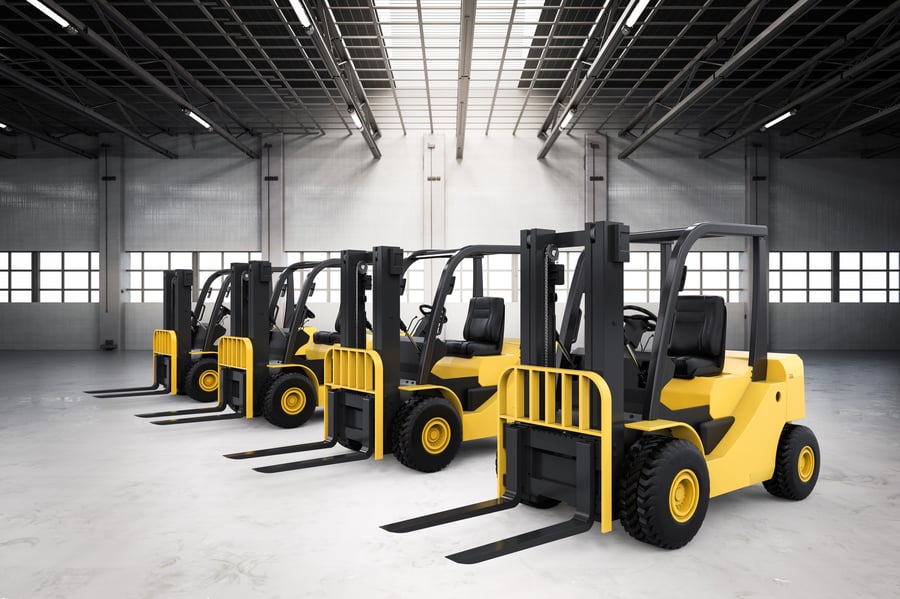
Business growth is always a cause for celebration, but for some logistics management professionals, it can also be a source of anxiety as they experience a parallel growth in their need for more equipment. Whether it's lifting, moving, stacking or sorting, your business depends on both your logistics team and the equipment they need to do their jobs.
When the time comes that your needs and capabilities outnumber your existing fleet of equipment, you have three options: buying, renting, or leasing warehouse equipment. As with most physical assets in business, each method comes with its own advantages and disadvantages, and knowing the difference is a surefire way to save a great deal of capital.
So how do you know which material handling equipment acquisition method is best for your operation?
Buying Material Handling Equipment
The go-to for many businesses, buying MHE outright is a great choice if you have the capital and if the positives outweigh the negatives. That's a big “if” for some small and medium-sized companies, however, as high-quality equipment represents a substantial upfront cost.
So when should you buy your equipment?
- You have low utilization needs; e.g., less than 1,000 hours of use per year
- The output of capital for equipment costs won’t damage business growth
- You’re confident you will have sufficient income to maintain the equipment
Pros of Buying MHE: 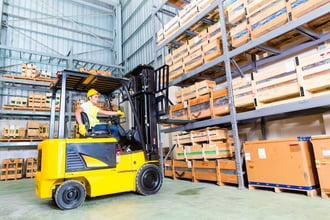
- Your new equipment becomes a capital asset that can be used for collateral for loans or resold for capital in the event of downsizing or upgrading
- You'll have zero penalties for hour meters—use is unlimited because the equipment is yours
- Buying has the lowest long-term cost of all three methods
Cons of Buying MHE:
- Technological speed can render equipment obsolete in a matter of years, which could potentially cause supply chain interface issues
- Maintenance is completely on your company’s shoulders: sourcing, invoicing, paying, and inspecting any work completed
- The cost of maintaining units towards the end of their life cycles may be greater than reasonable leasing costs on newer equipment
Leasing Material Handling Equipment
Leasing represents a familiar cost-saving measure for small-to-medium businesses, or those that trend towards smaller, more manageable growth periods—which are, in turn, easier to plan for financially.
Leasing provides a stable, predictable bill for use and removes the concern of complete replacement costs in the event of defect—a company simply pays a monthly rate to use the equipment for a certain number of hours.
According to a recent Gallup poll, over 80% of businesses lease at least one piece of equipment for their operational needs, so you’ll be in good company if you choose this option.
So when should you lease?
- When your business is growing at a steady, reasonably measurable rate
- When you aren’t expecting large enough spikes in logistics volume to warrant adding additional equipment on an emergency basis
- When you need to place capital into a tax-deductible expense to reduce tax liability while supporting long-term business goals
- When you don’t want to or can’t afford to take on the substantial upfront cost of ownership
Pros of Leasing MHE: 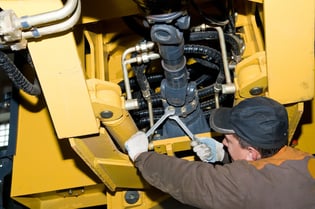
- Budgeting is much easier with a stable, unchanging monthly cost rather than a large upfront sum
- The acquisition cost of new material handling equipment is significantly lower than buying outright
- Maintenance is included with your contract, which means your company won’t need to source or invoice a provider
- Options are often available at the end of a lease, such as a buyout or lower monthly costs towards fair market value
Cons of Leasing MHE:
- Penalties will be assessed for using your leased MHE for additional hours beyond the agreed-upon limit, much like vehicle leasing
- Equipment does not count towards company valuation or collateral for business loans
- Depending on leasing terms and interest, you may end up paying more than FMV for equipment over the lease period lifespan
Renting MHE Equipment
The least common acquisition method for material handling equipment, renting is generally reserved for short-term, very high volume, or other uncommon need scenarios. The expense of renting typically outweighs the benefits of long-term use, but depending on opportunity costs, it can be a financially sound decision.
So when should you rent?
- You have a proven, recurring expectation for needing additional equipment, such as a “holiday rush” or similar time-based promotion
- Your business is built around seasonal movement and only needs MHE for a short period each year
- The financial costs of short-term equipment rental are vastly outnumbered in the profit and sales you anticipate making with it
- Your business stands to lose more than the rental costs if they don’t have equipment available to use
Pros of Renting MHE 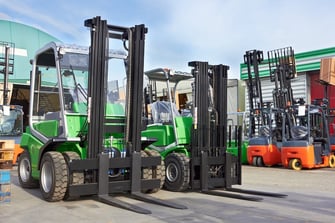
- Generally immediate availability—the most time-affordable option if a piece of equipment breaks or is suddenly needed
- No long-term (one year or longer) leasing contracts to be concerned with; rentals can be leveraged over much shorter periods
- Can be added or dropped as supplemental equipment as needed for seasonal or high-volume promotional “crunches”
Cons of Renting MHE
- Highest cost of all three options—it’s convenient, but you’ll pay a premium for that flexibility
- Maintenance may or may not be included, and you may even carry partial financial liability for malfunctions on rented equipment
- No buyout option offered at the end of the rental period
- Specialty equipment or masts are not likely to be available to interface with your existing equipment
To Sum It Up
At Kenco, we're here to help you grow your business through logistics and material handling equipment the right way—in a smart, financially-sound plan that will support your business throughout your supply and demand chain. We invite you to expand your MHE equipment research to our resources—the In-Depth Guide to 3PL Pricing and Why You Should Choose Kenco Material Handling Services—both valuable tools for helping you make the best choice for your brand.

